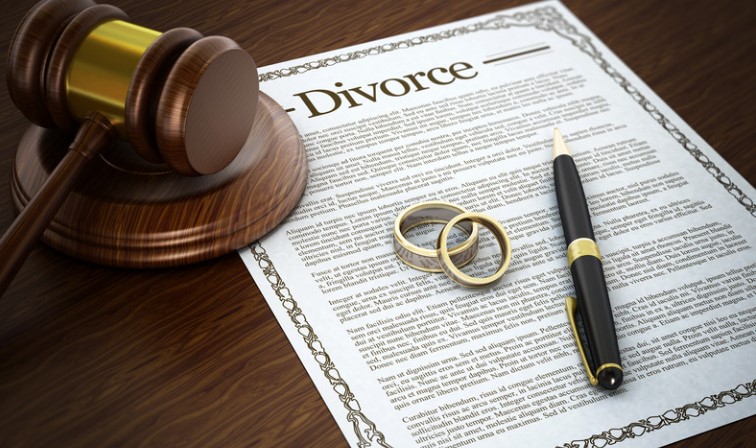When pursuing a divorce, it is important to understand that it is a complex process that requires careful planning and attention to detail. Hiring a lawyer who will guide you through the divorce process will help ensure that your case is handled in a way that protects your interests and minimises the legal costs involved. In this blog, we will explain how to get a divorce in Alberta and the grounds involved in the divorce.
Divorce in Alberta
Divorce is the legal process of the end of a marriage. It can be either a court-supervised or an uncontested divorce.
A divorce decree is a formal document issued by a judge that dissolves your marriage. If you and your spouse have no children together, you may file for a dissolution of your marriage without going through any other steps (such as custody negotiations). However, if there are children involved in the case, then it will be necessary for both parties to attend mediation sessions before filing for divorce.
Divorce lawyers are professionals who specialise in helping clients through this stressful time by providing them with legal advice regarding how best to proceed with their divorces; they also represent clients during trials and hearings related to these types of matters!
Grounds For Divorce in Alberta

A divorce is the final step in marriage. It ends all legal ties between spouses, including children and property.
According to the Divorce Act, there are three officially recognised grounds for divorce:
- Separation
- Adultery
- Cruelty
Separation
To get a divorce in Alberta, you and your spouse must be legally separated for at least one year. During this time, you can’t live together.
You can start the divorce action during this time period, but you’ll need to wait until the year has passed to file for a divorce. Due to financial or other family circumstances, you and your spouse may decide to live in the same home during this time period. You will be needed to provide proof that you were separated during that time period.
You’re allowed to resume your relationship with your spouse for up to 90 days during the 1-year separation.
Adultery
This means sleeping with someone else while married without telling your partner first because it’s cheating! You can get divorced if you’ve been sleeping with another person during your marriage, but only if there was an “intent” on behalf of both parties involved (i.e., one knew about their affair beforehand).
Cruelty
Cruelty is grounds for divorce in Alberta. This includes any behaviour that causes you to feel so unsafe that you can’t live with your partner anymore.
Cruelty only has to occur once. When one spouse conducts physical or mental cruelty to the other spouse, such as:
- Violence
- Constant verbal abuse (for example, insults or threats)
- Drunkenness
- Excessive drug use
You can file for divorce anytime if your spouse has been cruel to you. Evidence of the cruelty is required.
Uncontested behaviour
This includes acts that are cruel or cause mental or physical suffering to your spouse. For example, this could consist of physical or psychological abuse, such as yelling at someone when upset or threatening suicide if they don’t do what you want them to.
How to Get a Divorce in Alberta?
Getting a divorce in Alberta is not difficult, but it does take some time and effort. The first step is to find an experienced family law lawyer to help you through the process. You will need to provide them with all of your financial information so they can prepare an affidavit as part of your application for divorce.
Talk to Lawyer

The first step to getting a divorce in Alberta is to meet with a lawyer. It would help if you asked for a fee estimate, time estimate, budget and timeline of the case. A good lawyer will be able to give you these details so that you can make informed decisions about how much money your case will cost and what kind of timeline it should follow.
You may also ask about other options like mediation or collaborative law (where both parties agree on how the divorce will be handled).
Next, you should fill out the appropriate forms and paperwork. You will need to fill out a Notice of Family Claim form and file it with the court registry closest to where you live. This document outlines the reasons why you want a divorce, as well as any issues that may arise.
Select Your Ground of Divorce
There are four grounds for divorce: adultery, unreasonable behaviour, cruelty and desertion. You can also choose between separation of one year or more from the date of marriage.
Suppose you have been separated for less than one year but intend to stay together until at least that time period has passed. In that case, you may wish to consider applying for a “conjugal” divorce rather than an absolute divorce because it does not require proof of fault by either party in order to be granted.
The law also provides for a “no-fault” divorce, in which no grounds are given as the reason for separation. In these cases, the court may only grant a divorce if it is satisfied that sufficient circumstances make it just and reasonable to do so.
In addition to the above, the courts will also consider if there are any children of the marriage under 18 years of age, whether they are being properly cared for by both parents and whether an order for custody or access is in their best interests.
Complete the Appropriate Court Forms

In Alberta, you must complete the appropriate court forms and pay the required fees before proceeding with your divorce. Once you have done this, please submit them to the court so that they can be processed.
After completing all of these steps, wait for a response from the courts before proceeding with your case.
Determine the Value of Your Property and Assets
The next step in getting a divorce is to determine the value of your assets, including real estate and personal property. For example, if you have joint credit cards, bank accounts and retirement savings that are jointly owned, these assets should be considered as part of the total value of your marital property.
It would be best to consider how much money your spouse has saved before marriage—and what they might have earned during their relationship with you (or on their behalf). This can help establish whether or not they have any valuable assets separate from those shared with you as part of being married (like stocks).
In Alberta, this information will be used by judges when determining child support payments if there’s no prenuptial agreement between the two parties involved in their case; however, some states don’t require judges’ decisions about alimony payments based on financial circumstances, such as these.
Consider Your Financial Situation
After you’ve made the decision to divorce, you’ll want to consider your financial situation. You may be able to negotiate with your spouse or co-parent about paying off debt and saving for retirement, but you must have a plan in place before going through with the separation.
You should also consider what assets you have and their value if they were sold to cover ongoing expenses like mortgage payments or any other debts that might arise from this process.
If there are children involved in this process and spouses themselves, they need to be considered, too, especially when dealing with child support issues!
Create a Preliminary Child Support Agreement

If you are going to file for divorce, it is essential to have a preliminary child support agreement. This will help you create the foundation for your case and ensure that every aspect of the case is covered. The most important thing about a preliminary agreement is that it covers all relevant issues about how much money will be paid for each child’s needs and how much time each parent can spend with their children.
The best way to get this agreement is if both parties agree on everything beforehand, so there are no surprises when they return to court later.
In some cases, it is not possible to get a preliminary agreement. Sometimes the couple has been separated for a long time, and there is no longer an emotional connection between them. They may be arguing about things like custody of children, alimony payments, or child support payments.
In this case, it is not likely that they will be able to come to an agreement on their own; instead, they will have to go back to court for another hearing.
Talk About Custody Arrangements
In Alberta, the court will order that your children spend equal time with both parents. This means they can spend some time with each parent, but not all their days.
You should talk about custody arrangements in a friendly tone if possible. However, if you feel like it needs to be done, it’s best to start by talking about how you feel about seeing each parent regularly and how much time would be ideal for each. You may also want to mention any concerns or problems that might arise if there were no set schedule for visits or other activities such as sports camps or music lessons (for example).
Consider Alimony and Spousal Support Options
Alimony is a type of spousal support that is awarded to one spouse after divorce. It can be paid in the form of cash, property or both. The amount you get will depend on several factors, including your income level, age and health status, and how much time you spent with your former partner before filing for divorce.
Conclusion
You should know that getting divorced in Alberta can be challenging. However, if you have a strong case, it may be possible for you to get a divorce here. All of the information above should be helpful in deciding whether or not you want to pursue a divorce here in Alberta.
FAQ – How to Get a Divorce in Alberta?

How Much Does It Cost to Get Divorced in Alberta?
There’s a lot to consider when going through a divorce, including how much it will cost.
An uncontested divorce in Alberta will come in at about $1740. This is cheaper than a contested divorce, which averages around $23700 in Alberta, depending on several factors, such as the separation agreement.
How Long Does It Take to Get a Divorce in Alberta?
The process of getting a divorce is not necessarily a quick one. For example, if you have been married for several years, it may take up to two years before your spouse agrees to the divorce. However, if you are separated for less than one year and do not have children together (or are under 18), the court will allow them both to file their own paperwork within 30 days of separation (as long as they agree).
How is Spousal Support Calculated?
The amount of spousal support a court will grant is one of the family law court’s most important decisions. It can have a huge impact on how well your relationship will be able to survive after separation, and it can help you support your children in the future.
One of the most challenging aspects of family law is calculating marital support. Each instance must consider many variables to determine a fair and appropriate amount. Most Canadian courts and family law experts follow the Spousal Support Advisory Guidelines when calculating spousal support amounts.
Unlike the Federal Child Support Guidelines, these guidelines do not constitute legislation. They assist in calculating suitable spousal support amounts for court orders as well as out-of-court settlements and agreements.
What Can a Wife Claim in Divorce?
A wife can claim all forms of legal title, including cash, land and vehicles. However, she cannot claim debts and liabilities relating to only one spouse.
She can also claim pension benefits accrued during the marriage. This includes those accrued before the marriage was dissolved. She can also claim gifts and inheritances given to one spouse, expecting they will benefit both spouses equally.










